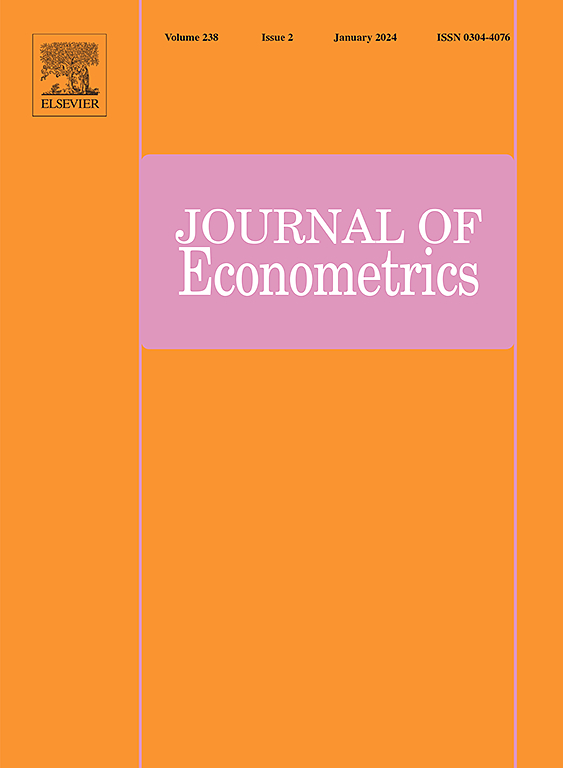有效的分位数协变量调整响应自适应实验
IF 4
3区 经济学
Q1 ECONOMICS
引用次数: 0
摘要
在项目评估研究中,了解项目在平均效应之外的异质性分布影响是至关重要的。分位数治疗效果(QTE)提供了捕捉这种异质性的自然测量方法。虽然目前估计QTE的大部分工作都集中在分析基于不可检验的因果假设的观测数据上,但很少有工作专门设计用于估计QTE的随机实验。在本文中,我们提出了两种协变量调整响应自适应设计策略-完全自适应设计和多阶段设计-来有效地估计QTE。我们证明了从我们的设计中获得的QTE估计量从半参数理论的角度达到了最优方差下界,它没有对底层数据分布施加任何参数假设。此外,我们表明,与经典的完全自适应设置相比,在多阶段设计中使用连续协变量可以提高估计QTE的精度。我们通过蒙特卡罗实验和一个关于慈善捐赠的综合案例研究来说明我们的设计的有限样本性能。我们提出的设计提供了一种进行随机实验来估计QTE的新方法,这对政策和项目评估具有重要意义。本文章由计算机程序翻译,如有差异,请以英文原文为准。
Efficient quantile covariate adjusted response adaptive experiments
In program evaluation studies, understanding the heterogeneous distributional impacts of a program beyond the average effect is crucial. Quantile treatment effect (QTE) provides a natural measure to capture such heterogeneity. While much of the existing work for estimating QTE has focused on analyzing observational data based on untestable causal assumptions, little work has gone into designing randomized experiments specifically for estimating QTE. In this manuscript, we propose two covariate-adjusted response adaptive design strategies–fully adaptive designs and multi-stage designs–to efficiently estimate the QTE. We demonstrate that the QTE estimator obtained from our designs attains the optimal variance lower bound from a semiparametric theory perspective, which does not impose any parametric assumptions on underlying data distributions. Moreover, we show that using continuous covariates in multi-stage designs can improve the precision of the estimated QTE compared to the classical fully adaptive setting. We illustrate the finite-sample performance of our designs through Monte Carlo experiments and one synthetic case study on charitable giving. Our proposed designs offer a new approach to conducting randomized experiments to estimate QTE, which can have important implications for policy and program evaluation.
求助全文
通过发布文献求助,成功后即可免费获取论文全文。
去求助
来源期刊

Journal of Econometrics
社会科学-数学跨学科应用
CiteScore
8.60
自引率
1.60%
发文量
220
审稿时长
3-8 weeks
期刊介绍:
The Journal of Econometrics serves as an outlet for important, high quality, new research in both theoretical and applied econometrics. The scope of the Journal includes papers dealing with identification, estimation, testing, decision, and prediction issues encountered in economic research. Classical Bayesian statistics, and machine learning methods, are decidedly within the range of the Journal''s interests. The Annals of Econometrics is a supplement to the Journal of Econometrics.
 求助内容:
求助内容: 应助结果提醒方式:
应助结果提醒方式:


